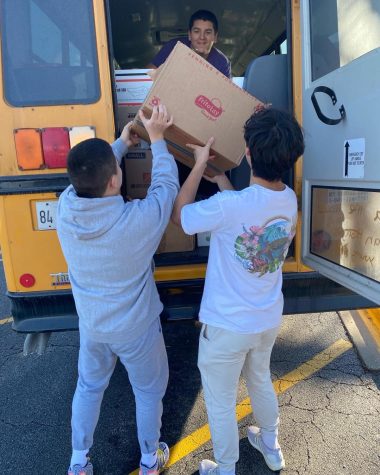Students seek support after the transition back to in-person learning
September 13, 2021
Rolling out of bed and hopping onto a Zoom class is completely different to waking up early in the morning and going to class at school. Some South students have been feeling disorientated, agitated, and gloomy in this environment. However, experiencing all of those feelings isn’t something that should be swept under the rug. Instead, it should be brought up in conversations and attended to immediately.
During the Covid-19 pandemic, it’s been vital to keep physical distance between people that don’t live together. Schools, on the other hand, enforced wearing a mask on at all times. I believe that facial expressions are crucial in helping communicate feelings and supplying reassurance, so being around masked faces can augment feelings of uncertainty.
I also believe that students can feel eerie and overwhelmed by the numerous unfamiliar faces in their classes. Furthermore, students can find it uneasy to get acquainted with others because of the risk of getting Covid-19 and infecting their families. While some students are generally flexible and can adapt to any given situation, the precautions South has taken to guard students’ health can make transitions to new situations and meeting new people harder.
In addition, the Covid-19 pandemic has increased stress, fear, and worry for families. Trouble with sickness, finances, isolation, coping with grief from loss, or having less outside help has made parenting more than stressful. Many families have reported sensing an increase to anxiety and acting out in their kids’ behavior. Research conducted by the University of Minnesota, has concluded that depression and anxiety rates have gone up 20.5 percent to 25.2 percent, since the start of the pandemic. I strongly think that schools shouldn’t neglect this.
Schools should assist students that are going through these issues. South can aid students and their families by creating weekly Zoom meetings in order to have deep and thoughtful conversations about what needs to be done for their kid(s) to overcome certain obstacles. Making the transition from home to school can be especially enervating for students with developmental, behavioral, or emotional problems, too.
Meeting with teachers before or after school can be a start to providing guidance for them with the new school year. Parents, teachers, and organizations can help students succeed during this transition, make meaningful connections, and establish new routines.
Organizations like the Illinois State Board of Education and the Illinois Department of Public Health can be of great use to students if they ever want to contact them with questions or open up about something they’re going through.
With all that said, students with the right support can adjust to their new circumstances easier, make new friends, learn new things, and thrive.














